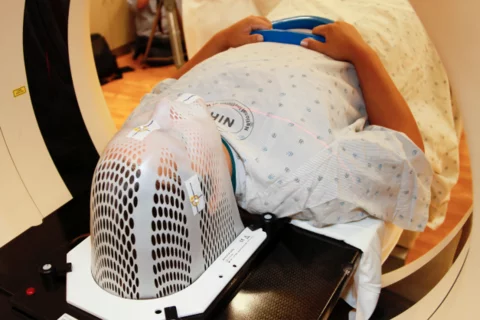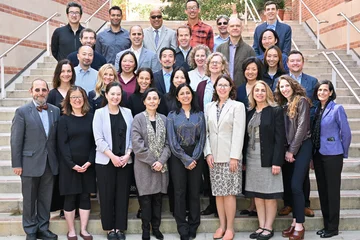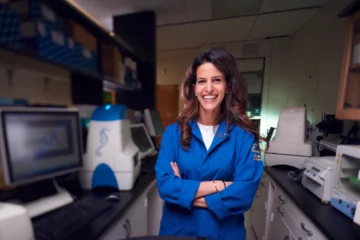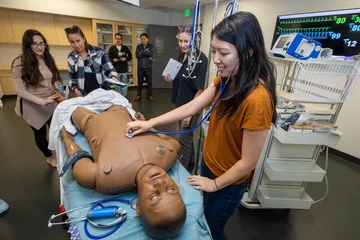A Day in the Life of Dr. Allen Chen, Professor of Radiation Oncology and Vice Chair of Education
Radiation oncology is an increasingly popular specialty. With rising cancer rates and numerous advances in medical technology, the field offers tremendous opportunities for practice and research. But what does a radiation oncologist do?
"Radiation oncologists harness the therapeutic properties of radiation to treat and cure cancer," explains Allen Chen, MD, professor of radiation oncology and vice chair of education at the David Geffen School of Medicine at UCLA. "We are oncologists first, in that we have to understand cancer as a disease, its biology and patterns of spread. Then we determine how radiation fits into the general scheme of treatment."
Specialty Training
After medical school, radiation oncologists complete a one-year internship, which can be in internal medicine or surgery. This is followed by four years of specialty training, during which residents gain experience in treating a variety of cancers. Some people may also choose to complete a fellowship to specialize further, often in more advanced technologies.
Radiation oncology is a competitive specialty, with fewer than 200 residency positions offered annually across the United States. However, Dr. Chen insists that the number of residencies shouldn't deter anyone from pursuing the specialty. He encourages students interested in radiation oncology to plan out their path early on in medical school, to get involved in research and to take advantage of mentorship opportunities.
Radiation oncologists use a variety of treatment methods, including radioactive implantations, external beam radiotherapy, hyperthermia and combined modality therapy such as radiotherapy with surgery, chemotherapy or immunotherapy.
Dr. Chen also notes that there are tremendous opportunities for biological and engineering research in radiation oncology.
Dr. Chen spends part of his day in the office either consulting with new patients who are evaluating their treatment options after being diagnosed with cancer or following up with patients who have completed treatment.
"Radiation oncologists establish meaningful relationships with patients," he says. "We see them when they are their sickest and need an ear for their suffering. We are able to offer them hope, which is gratifying. We also follow patients for years after treatment and get to know them as people, rather than just by their disease."
Planning and Performing Procedures
Dr. Chen also spends several hours planning and performing radiation procedures. He focuses on head and neck cancers, for which radiation is often the primary form of therapy. Planning takes a good bit of time, as radiation has become much more targeted.
"Planning, also known as mapping, involves using sophisticated software and computers to delineate how you want to deliver radiation to the patient's anatomy," Dr. Chen explains. "Accurately targeting and focusing radiation is paramount to achieving success. A whole team is involved in each step."
He says that technology has advanced to the point where techniques can target tumor metabolism or oxygenation, leading to a more specific approach to cancer treatment than just focusing on anatomy. Imaging technology also allows the oncologist to see where tumors sit in a patient's body and account for factors such as respiration and movement, resulting in greater precision in treatment delivery.
Technological advances help cure patients and protect physicians. Exposure to radiation has been worrisome for many people, but radiation oncologists are rarely, if ever, exposed. Treatments are performed in shielded rooms with heavy lead barriers, and radiation is delivered using robotic arms.
A Multidisciplinary Field
What does a radiation oncologist do in addition to consulting with patients and planning and performing treatments? Dr. Chen says that the field is increasingly multidisciplinary. He sits in on tumor boards and reviews cases with other specialists including surgeons, pathologists and radiologists. He also works on developing research protocols, often combining radiation with drugs to improve cure rates.
Dr. Chen emphasizes that radiation oncology is a fabulous field with the potential to make a real difference to patients.
(What Does a Hematologist Oncologist Do? Click the link to learn more...)




